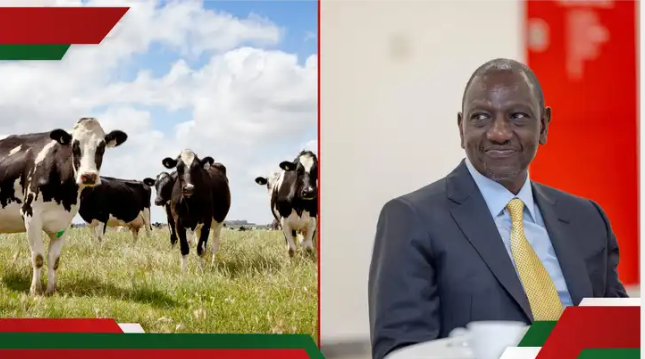
The Kenyan government has announced that farmers will need to shoulder the cost of cattle vaccinations, with the total estimated cost reaching KSh 3.95 billion. This measure aims to control the spread of livestock diseases that have increasingly threatened the country’s agricultural sector and economy.
Livestock Principal Secretary Jonathan Mueke revealed the decision, citing the significant financial burden of managing recurring outbreaks such as foot-and-mouth disease, lumpy skin disease, and Rift Valley fever. He explained that while the government remains committed to supporting the agricultural sector, the vaccination program cannot be sustained without farmers’ financial contributions.
The total cost to ensure effective nationwide cattle vaccination is approximately KSh 3.95 billion. Given the current economic challenges, the government alone cannot bear this cost. We urge farmers to actively participate in protecting their livestock by contributing to vaccination efforts, Mueke stated.
The announcement follows increasing reports of livestock diseases devastating herds in key farming regions, leading to reduced productivity, economic losses, and threats to food security. Foot-and-mouth disease, in particular, has caused significant losses, prompting calls for urgent vaccination campaigns to contain its spread.
Kenya is home to millions of livestock, which form a critical part of the country’s agricultural sector, contributing nearly 12% of GDP. The sector supports livelihoods for rural communities, particularly in arid and semi-arid regions where pastoralism is a primary economic activity.
Farmers’ reactions to the announcement have been mixed, with some expressing concerns over the additional financial burden. Small-scale livestock farmers, already grappling with rising production costs, drought, and market challenges, fear that the vaccination fees could strain their finances.
A pastoralist in Kajiado County remarked, We understand that vaccination is necessary, but many of us cannot afford the additional costs. The government needs to find ways to subsidize this program to protect our animals and livelihoods.
The government, however, maintains that vaccination is a necessary investment to protect farmers from larger economic losses caused by disease outbreaks. The Ministry of Agriculture is exploring a cost-sharing model that would allow farmers to pay manageable fees while ensuring broad vaccination coverage.
To assist farmers, the government plans to collaborate with county governments and stakeholders to roll out awareness campaigns highlighting the benefits of vaccination. Additionally, partnerships with private veterinary services and international donors are being pursued to mobilize resources and reduce costs for farmers.
Economists have warned that failure to address livestock diseases could have long-term consequences for Kenya’s agricultural output and exports. Diseases such as Rift Valley fever also pose public health risks, underlining the need for an urgent and coordinated vaccination strategy.
Livestock farmers have been encouraged to organize themselves into cooperatives and groups to access bulk vaccination services, which would reduce individual costs. The Ministry of Livestock Development has further pledged to prioritize training programs for farmers to enhance disease management practices and livestock care.
While the move places a burden on farmers, industry experts believe the vaccination program will safeguard the livestock sector and protect incomes in the long run. As the government works to finalize the rollout plan, farmers and stakeholders await further clarification on the cost-sharing mechanisms and possible subsidies.
The vaccination program is expected to begin in phases, targeting high-risk regions first. Authorities are optimistic that widespread vaccination will mitigate future outbreaks and strengthen Kenya’s livestock industry, a cornerstone of the national economy.

